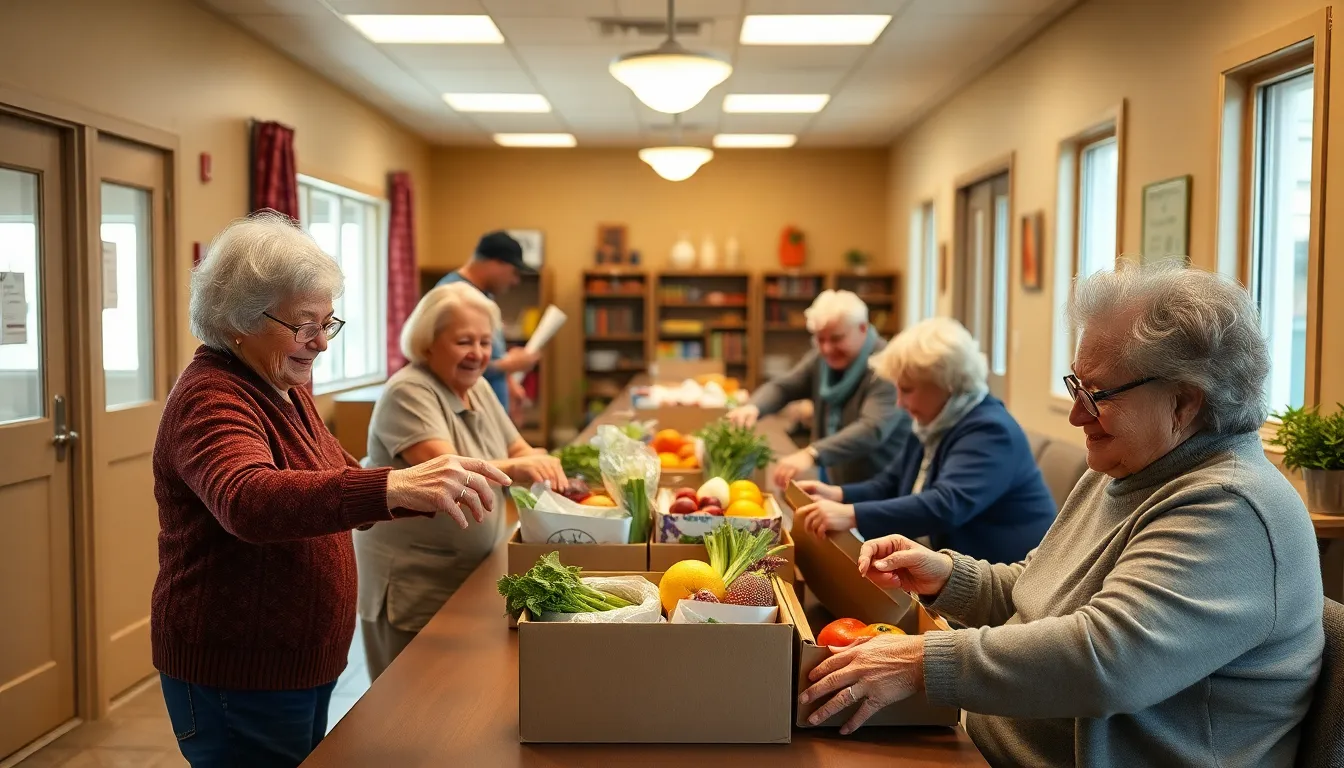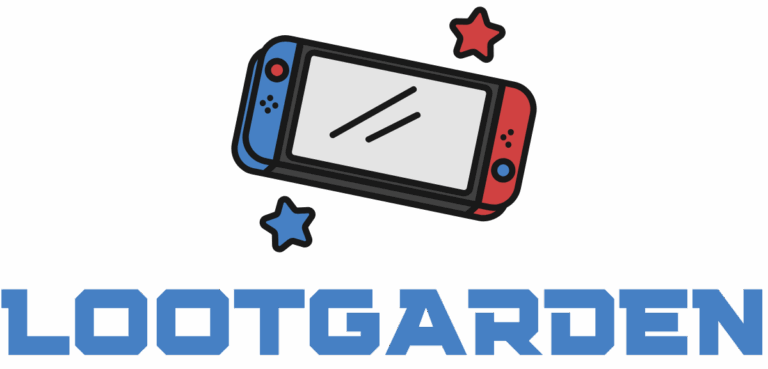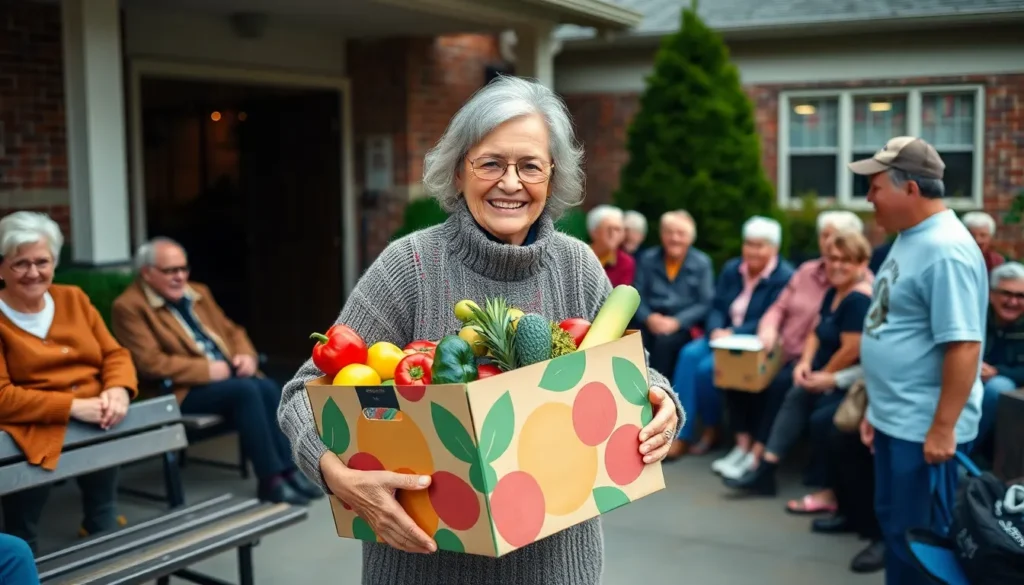Finding access to nutritious food can be a challenge for many seniors, especially those on a fixed income. Fortunately, numerous organizations offer free food boxes designed specifically for older adults. These programs not only provide essential groceries but also foster a sense of community and support among seniors.
In this article, readers will discover local resources and initiatives that deliver free food boxes to seniors in their area. By exploring these options, seniors can ensure they receive healthy meals without straining their budgets. Whether it’s through local food banks, community centers, or government programs, help is available for those who need it most.
Table of Contents
ToggleUnderstanding Free Food Boxes for Seniors
Free food boxes for seniors offer essential groceries at no cost, supporting older adults in maintaining a healthy diet. These resources help alleviate food insecurity and provide nutritional stability for individuals facing financial challenges.
What Are Free Food Boxes?
Free food boxes consist of pre-packaged groceries delivered to seniors at no charge. These boxes typically include items like fruits, vegetables, canned goods, and dairy products. Local food banks, community organizations, and government initiatives distribute these boxes, ensuring seniors receive nutritious food tailored to their dietary needs. Many programs also focus on delivering boxes directly to senior homes, increasing accessibility for those with mobility issues.
Eligibility Requirements for Seniors
Eligibility for free food boxes often depends on several factors:
- Age: Seniors usually need to be 60 years or older.
- Income: Many programs require a proof of income to demonstrate financial need. Income limits typically align with federal poverty guidelines.
- Residency: Applicants often must reside within the service area of the program or organization.
- Nutrition Needs: Some programs may consider specific dietary requirements or health conditions.
Each organization may have unique criteria, so it’s crucial for seniors to check the requirements for local food box programs.
Local Resources for Free Food Boxes

Various local resources exist for seniors seeking free food boxes. Community centers and nonprofit organizations play critical roles in providing accessible options for obtaining nutritious food.
Community Centers
Community centers often serve as distribution points for free food boxes. They collaborate with local food banks and charities to facilitate programs geared towards seniors. Many centers host regular food distribution events, offering fruits, vegetables, and pantry staples. Seniors can visit their nearest community center to find out about scheduled events and eligibility criteria. Some centers also provide additional services, such as nutrition education and cooking classes, which support healthier eating habits among seniors.
Nonprofit Organizations
Numerous nonprofit organizations specialize in supporting food-insecure seniors. These organizations understand the unique challenges faced by older adults and offer tailored services to meet their needs. Many nonprofits, such as Meals on Wheels and local food pantries, distribute free food boxes directly to seniors’ homes or host weekly distribution sites. Interested seniors should reach out to local nonprofits to learn about program availability, registration procedures, and specific offerings that cater to their dietary requirements. Organizations often rely on volunteers, making community engagement an essential part of ensuring food access for seniors.
How to Find Free Food Boxes Near You
Finding free food boxes for seniors can be straightforward with the right resources and local programs. Various online platforms and government initiatives can assist older adults in accessing this essential support.
Online Resources
Numerous online resources simplify the process of locating free food boxes. Websites such as Feeding America allow users to input their zip code to find local food banks and pantry programs. Many food banks maintain updated lists of distribution days and eligibility requirements. Additionally, community websites and social media groups dedicated to senior services often post announcements about food distribution events. Online platforms like 211.org provide comprehensive resource directories, connecting seniors to food assistance programs based on their specific needs and geographic locations.
Local Government Programs
Local government programs often offer free food box initiatives tailored for seniors. Federal programs, such as the Supplemental Nutrition Assistance Program (SNAP), help eligible seniors afford nutritious groceries, while local offices may host regular food distributions in partnership with community organizations. Many municipalities run senior services departments that provide information about available food programs, schedules, and locations. Outreach programs specifically designed for seniors ensure easy access to food boxes, emphasizing convenience and accessibility in food distribution.
Benefits of Free Food Boxes for Seniors
Free food boxes for seniors provide essential nutritional support and foster social interactions, addressing food insecurity and enhancing overall well-being.
Nutritional Advantages
Nutritional advantages play a significant role in the impact of free food boxes for seniors. These food boxes typically include a variety of fresh fruits, vegetables, whole grains, and proteins, which help fulfill dietary requirements. Consuming a balanced diet strengthens the immune system and promotes better health outcomes, reducing the risk of chronic illnesses such as diabetes and heart disease. Access to nutrient-rich foods also enhances energy levels, enabling seniors to engage more actively in daily life. Organizations customize food boxes according to specific dietary needs, ensuring seniors receive servings appropriate for their health conditions, such as low-sodium options for those with hypertension.
Social Interaction Opportunities
Social interaction opportunities frequently arise from the distribution of free food boxes for seniors. Many community centers and organizations host events where seniors can collect their food boxes, creating a welcoming environment for socializing. These gatherings encourage connections among seniors, combating feelings of isolation and loneliness. Participating in food distribution events may also lead to friendships and networks where participants share experiences and advice, contributing positively to mental well-being. Additionally, education programs and cooking classes offered at these events provide valuable skills and further promote engagement within the community.
Accessing free food boxes can significantly enhance the quality of life for seniors facing food insecurity. By leveraging local resources like community centers and nonprofit organizations, seniors can obtain nutritious meals without financial strain. These initiatives not only provide essential groceries but also foster social connections, helping to combat isolation.
Seniors are encouraged to explore available programs in their area and take advantage of the support offered. With a variety of options tailored to meet specific dietary needs, it’s easier than ever for seniors to access healthy food and improve their overall well-being. Engaging with these resources can lead to a healthier, more connected lifestyle.






